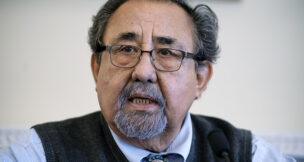Lawmaker to push bill banning sale of Colorado River rights
Janet Perez//September 28, 2020//

As far as Rep. Regina Cobb, R-Kingman, is concerned, she has just begun to fight. Cobb remains steadfast against a deal that allows a farm along the Colorado River to sell millions of gallons of water to the city of Queen Creek. The water would be diverted away from the western Arizona farming community of Cibola in La Paz County
Cobb, the Republican state representative for Legislative District 5, which covers all of La Paz County and the majority of Mohave County, says she plans to press on with her bill to block similar sales in the future. The bill was never heard in committee during this past legislative session, but she’s hoping to change that in 2021. She says she is building a bipartisan coalition that includes representatives from other western counties, including Yuma, which has a large agricultural industry.
In 2018, GSC Farm agreed to sell a portion of its fourth priority Colorado River entitlement rights to Queen Creek. The growing community in the Southeast Valley is looking beyond groundwater resources to sustain future growth.
Queen Creek planned to buy and transfer 2,083-acre-feet, or 678 million gallons, of Colorado River rights. After much protest from western Arizona cities, earlier this month the Arizona Department of Water Resources recommended that Queen Creek get just a little more than half of the water it was asking for. Instead of 678 million gallons of water a year, the town will receive 351 million gallons a year from GSC Farm. The ADWR made the recommendation to the U.S. Bureau of Reclamation, which must get a final approval from the U.S. Department of the Interior.
Cobb says the decision surprised her because it appeared to her that ADWR Director Tom Buschatzke was not going to allow the deal.

“I can’t even tell you how huge this is,” Cobb says. “To begin with we’ve never allowed fourth priority water rights to be sold and now it’s going to go to the highest bidder. Cibola doesn’t benefit from this at all. Each of those down-river communities are going to be losing out if you’ve got a precedent and one person can take that fourth priority water right out of there. Even though it’s only in Cibola, guess what? It affects everybody else on the river community. They’re all being affected by this and it’s a slap in the face.”
In a press release announcing his recommendation, Buschatzke states that in evaluating this application and any future applications, “the department must weigh many competing factors including the beneficial use of the water after the transfer and any potential impacts on the western Arizona communities who rely on the Colorado River.
“In this case a partial transfer allows the town of Queen Creek to meet objectives in the 1980 Groundwater Management Act while avoiding negative impacts for established agricultural economies and growing urban areas in western Arizona,” Buschatzke states.
In 1980, the state passed the Groundwater Management Act for development of any subdivision that covers Phoenix, Pinal County, Tucson and Prescott. To develop a new subdivision a developer has to demonstrate a 100-year supply of water, that they are not going to overdraft groundwater supplies and that the water they take must be replenished, says Sarah Porter, director of the Kyl Center for Water Policy at the Morrison Institute.
While Porter says she understands the need for water to support growth in central Arizona, “by the same token western Arizona communities have the Colorado River running right next to them and they have looked to that as their long-term supply, and they have aspirations for growth too and they don’t want to have central Arizona suck away their water resources.”
Still, she calls Buschatzke’s decision “a very thoughtful approach. He said we need to leave enough water there for the projected development [of western Arizona].”
As for Cobb, along with re-introducing her bill, she plans to go to the Department of the Interior in Washington, D.C., to request that the AWDR’s recommendation not be granted. She adds that she may also go through legal channels.
Of course, with the election looming, Cobb also is preparing for a possible change in the landscape of the Legislature.
“Once we get the make-up of the Legislature, then I’ll start sitting down and figuring out a strategy,” she says. “Whether it’s the Democrats who are in the lead or the Republicans who are in the lead makes a big difference on who’s going to take on the bill. I might not even be the bill’s sponsor. I don’t have to take the lead on it, but I will lead the charge. Somebody has to, right?”


















